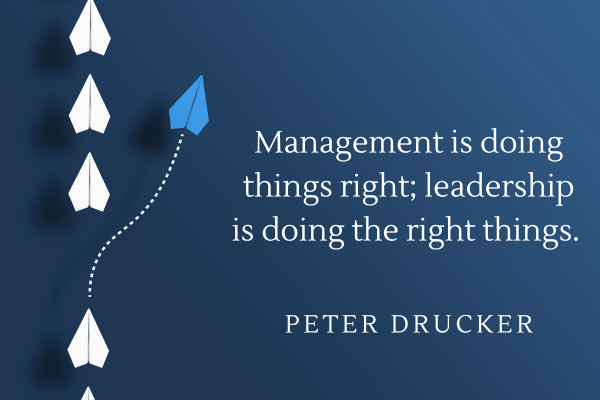
The Father of Management Thinking
Shortly before his death in 2005, Peter Drucker was celebrated by BusinessWeek magazine as the, “The man who invented management.”
In a career that spanned 65-years, Drucker, an Austrian-American management consultant, educator and author, significantly contributed to the philosophical and practical foundations of modern business management.
And, his insights can be found throughout management literature, including in his 1954 book The Practice of Management, and in his Harvard Business Review article “What Makes an Effective Executive.”
In this article, he outlined eight fundamental practices executives should develop.
While all eight of these qualities are important, they can be distilled into three essential takeaways, providing a valuable resource for professionals interested in honing their leadership and management skills.
Leadership Skill 1: Acquiring Necessary Knowledge
One crucial aspect is to ask two vital questions:
- “What needs to be done?”
- “What is best for the enterprise?”
By genuinely contemplating and answering these questions, executives can determine the projects and tasks that will bring the most significant benefits to their organization.
Leadership Skill 2: Translating Knowledge into Action
While action plans are familiar to many, the key lies in their execution.
Effective executives focus on one or two priorities at a time, assign high-performing individuals to critical tasks, and concentrate on seizing opportunities rather than dwelling on problems.
This approach doesn’t mean they disregard problems; rather, they prioritize forward momentum over extensive problem-solving.
Leadership Skill 3: Embracing Responsibility and Accountability
Successful executives earn the trust of their organization through:
- Effective communication
- Taking ownership of decisions while delegating authority to subject matter experts
- Embracing a collective mindset by using “we” instead of “I.”
Final Thought
It is important to note that Drucker acknowledged the inherent fallibility of humans, and even adhering to these practices religiously cannot guarantee absolute success.
However, he emphasizes that failing to ask these essential questions will almost certainly lead to making incorrect decisions.
The insights discussed in this review were based on an article published in the June 2004 issue of the Harvard Business Review.
